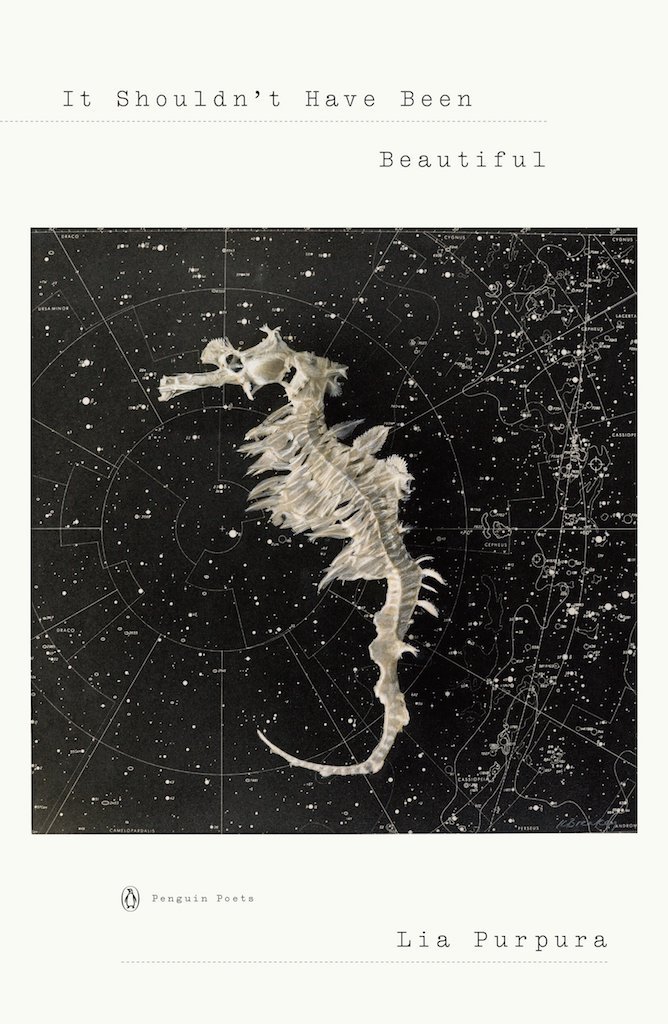Not all poems have memorable origin stories, but this one’s birth is so clear I can still feel in my body the moment of its arrival, see the sharp light, the falling away of everything else but its shape forming. On an early fall day, my students and I were all talking together kind of rapid-fire about something logistical (this was years ago now) I looked up and out the window and—there was this single, bright yellow leaf amid the green. No slow dawning, no ideas, no decision-to-write; everything went quiet in my head and the words for this poem (which hardly felt like words) just…came. I remember telling my students give me a minute I have to write something down, and though I say “the words just came” the language itself felt almost intrusive, like a clumsy adaptation of a finer, more efficient form of communication—and yet, the pressure to inscribe was compelling. It was like passively receiving something and also being able to physically make something at the same time. So I just wrote down what arrived. No message-from-beyond, but rather absolute presence, a time-bending experience.
The life force of other things is real and we live in reciprocal relationship with those around us. Let’s say those beings we’re accustomed to calling “things” are a part of a communicative network and we ourselves are a site at which meetings take place. It’s a profound way of being alive, this recognition of our part and our partialness, our absolute tether to, and collaboration with, the lives of others. The act of perception itself feels holy to me. It’s the way Neruda adored “objects” like socks or soap —holding them as impassioned and alive and unto themselves—but not “personified”—that is, peopled-up, staged or stilled for our use, consumption, manipulation.
I’m less interested in the “message” a thing might “deliver” (noting here Coleridge’s distinction between fancy and imagination—the former an imposition of will and the latter a collaborative move) than the joy or stun or awe-filled, often surprise nature of the meeting between us. There was this leaf, the first of the oncoming season, and its presence just entered into, burst upon, and rode the moment. It made itself known and I got to take part in its being by way of its natural assertion, or, we might say, by way of its “beauty.” My students were pretty indulgent when I paused for a long while to respond to the moment, but it was when the poem was published very soon thereafter, that I had the chance to talk with them about the basic, quiet, very muscular animism of daily life (after all, they saw it happen)—and by extension, the way building up, trusting, valuing perception can enter a person into so many forms of concrete kinship.
What Sparks Poetry is a serialized feature in which we invite poets to explore experiences and ideas that spark new poems.
Lia Purpura on “First Leaf”
Writing Prompt
Rather than offer an exercise, I offer a thought about habits. The act of trusting and valuing perception can be cultivated and is the most powerful way I know to align writing with living. All the inklings, sidelong sensations, peripheral observations, double-takes, objects or phrases that catch the eye or ear want be kept. Don’t let them slip. Those are the flares the world’s tossing up, the “subjects”, the ripe things. I mean to suggest more than “pay attention” — I mean to say “honor and value perception enough to write it down.” For its own sake. Because it spoke.
— Lia Purpura
Share This Post
Print This Post

Lia Purpura
Lia Purpura is the author of nine collections of essays, poems, and translations. A finalist for the National Book Critics Circle Award for On Looking (essays, Sarabande Books), her awards include Guggenheim, NEA, and Fulbright Fellowships, as well as four Pushcart Prizes, the Associated Writing Programs Award in Nonfiction, and others. Her work appears in The New Yorker, The New Republic, Orion, The Paris Review, The Georgia Review, Agni, Emergence, and elsewhere. She lives in Baltimore, MD, where she is Writer in Residence at The University of Maryland, Baltimore County. She has taught in the Rainier Writing Workshop’s MFA program, at Breadloaf Writers Conference, The University of Iowa’s Nonfiction MFA program and at conferences, workshops, and graduate programs throughout the country. Her newest collection of poems is It Shouldn’t Have Been Beautiful (Penguin) and her latest collection of essays is All the Fierce Tethers, (Sarabande Books).



